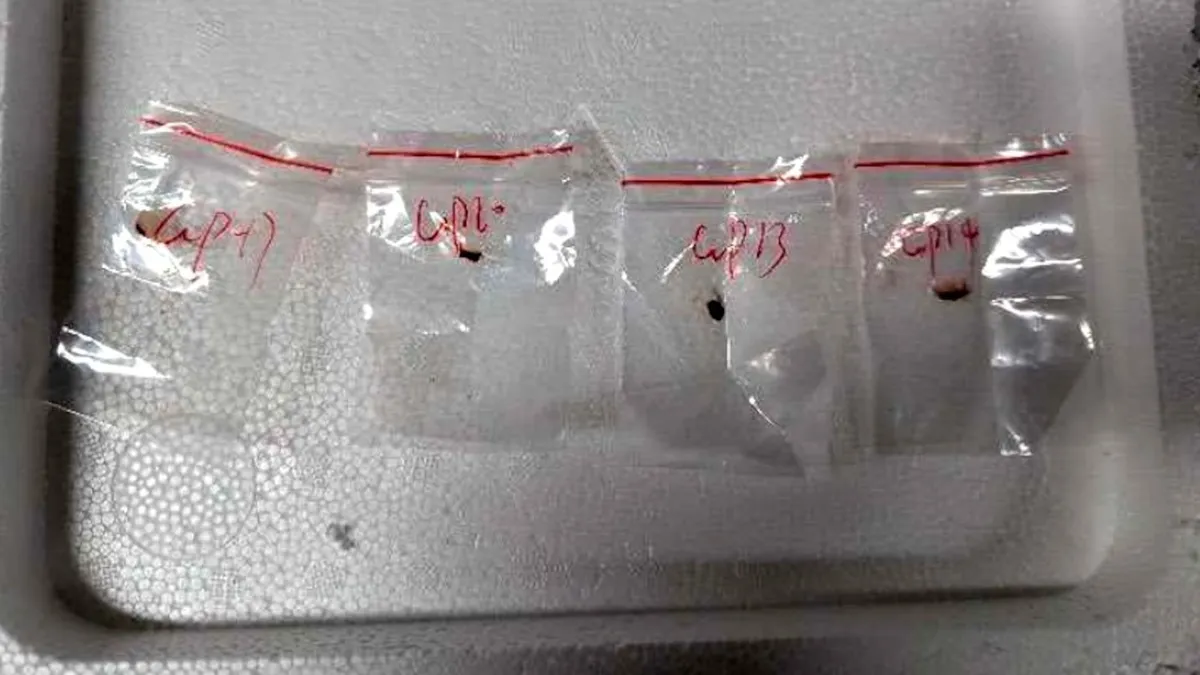
In a startling development, two Chinese nationals have been charged with the alleged smuggling of a dangerous fungus known as Fusarium graminearum into the United States. The U.S. Justice Department announced the charges on Tuesday, emphasizing the serious implications of this biological threat, which has been classified in scientific literature as a potential agroterrorism weapon.
The individuals charged are Yunqing Jian, 33, and Zunyong Liu, 34, both citizens of the People’s Republic of China. According to officials, they were allegedly receiving funding from the Chinese government for their research activities, some of which were conducted at the University of Michigan. A press release from the DOJ also revealed that Jian had information on her electronics indicating her membership and loyalty to the Chinese Communist Party.
In a concerning twist, it is alleged that Liu, who conducts research on the same pathogen at a Chinese university, initially lied to authorities about bringing the fungus into the U.S. through the Detroit Metropolitan Airport. He later confessed that he intended to use it for research at the laboratory where Jian worked.
Attorney General Pam Bondi expressed grave concern over the incident, stating, “The Justice Department has no higher mission than keeping the American people safe from hostile foreign actors.” She highlighted the gravity of the situation, noting that the individual attempted to bring a destructive substance into the United States and will face significant legal consequences.
The FBI has warned that Fusarium graminearum causes “head blight,” a disease that affects various crops such as wheat, barley, maize, and rice. This pathogen is responsible for billions of dollars in economic losses annually worldwide. U.S. Attorney Jerome Gorgan underscored the national security risks posed by the alleged actions of these individuals, labeling the smuggling of this fungus as a serious threat to America’s agricultural sector.
According to Marty C. Raybon, Director of Field Operations for U.S. Customs and Border Protection (CBP), the charges against Jian and Liu exemplify the importance of CBP in safeguarding the American populace from potential biological threats. Raybon emphasized that the case highlights the risks associated with researchers attempting to import harmful biological materials clandestinely.
Jian was scheduled for an initial court appearance on Tuesday in federal court in Detroit. The affidavit suggests that Jian and Liu were romantically involved and were both engaged in researching the biological pathogen. During questioning at the airport, Liu initially misled authorities about his intentions.
On July 27, 2024, Liu entered the U.S., claiming he was visiting Jian and planning to return to China to establish his own laboratory. He falsely stated he had no work materials. However, during a secondary luggage screening, authorities discovered suspicious items, including tissues concealing a note in Chinese, a round piece of filter paper with drawn circles, and four plastic baggies containing reddish plant material. Initially, Liu denied knowledge of these materials but later admitted to intentionally concealing them, knowing full well the restrictions on importing such items.
In light of the charges, the University of Michigan released a statement condemning any actions that threaten national security or the institution's public mission. The university clarified that it has not received any funding from the Chinese government related to the research of the accused individuals and confirmed its commitment to cooperating with federal law enforcement throughout the investigation.
This case raises significant concerns regarding agroterrorism and the protection of America's agricultural economy, highlighting the urgent need for vigilance against biological threats.